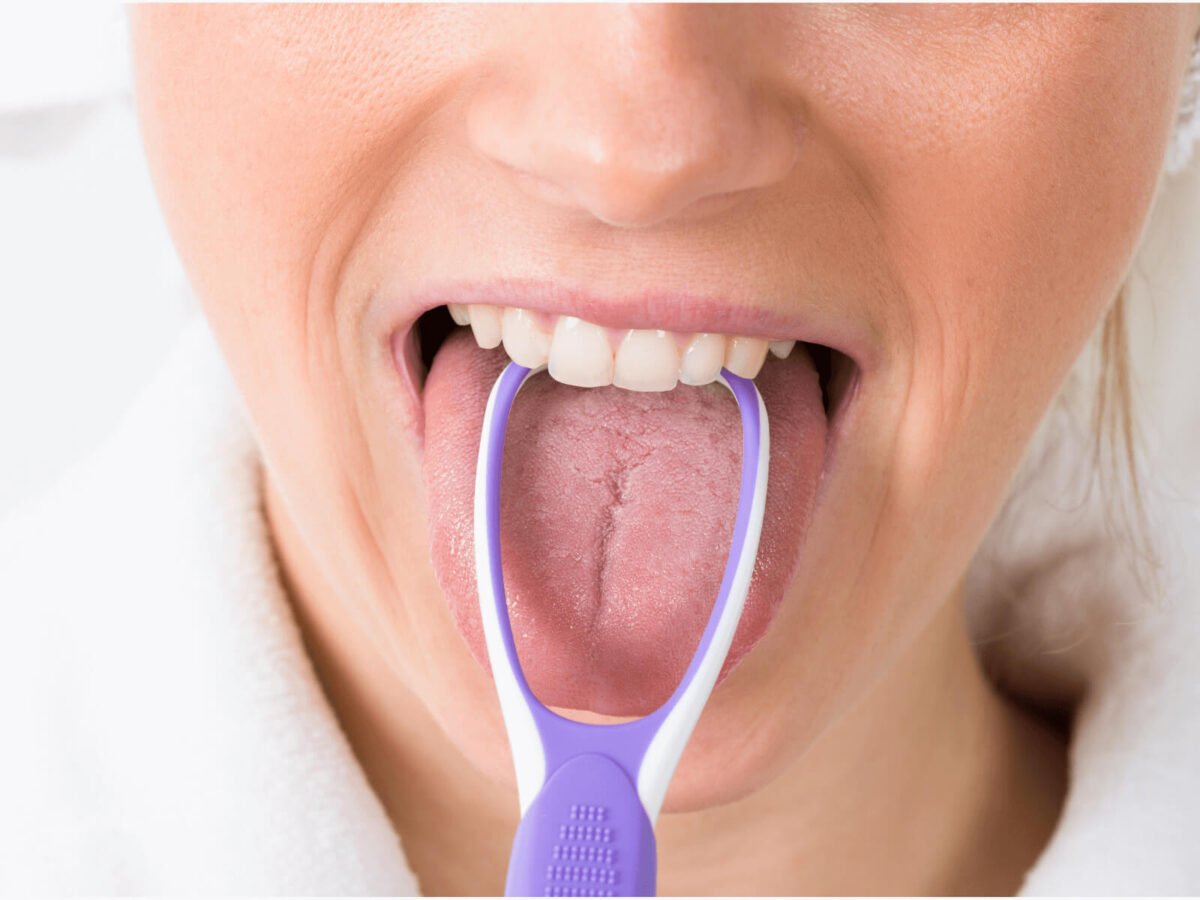Blog
Dental hygiene tips for healthy teeth & gums

Plastic Vs. Metal Tongue Cleaner: Which One Is Right For You?
We’re all told to brush and floss, right? But barely anyone talks about cleaning their tongue. Most people skip it without a second thought, and honestly, that might be why your breath still feels off or your mouth feels kind of gross sometimes. A clean tongue means a cleaner mouth overall, and that’s where tongue cleaners come in.
Now, you’ve probably seen both plastic and metal tongue scrapers on the shelf. But which one is better? And more importantly, which one is good for you?
Dentists like those practicing at Sinton Dental Office TX, often recommend tongue cleaning as a simple way to improve your oral hygiene. But let’s dig into the details of which type might be the best fit for your routine.
Why Use a Tongue Cleaner at All?
Here’s the thing: your tongue isn’t just some smooth piece of skin. It’s got texture to it, like a little rug for food bits, bacteria, and whatever else gets left behind. And if you’re not cleaning it regularly? That gunk just piles up. No surprise it leads to bad breath, weird tastes, and stuff your toothbrush can’t fix.
- Bad breath
- A coated tongue
- Altered taste
- Increased bacteria in the mouth
Using a scraper helps remove that buildup and leaves your mouth feeling fresher. There’s no denying the tongue scraper benefits, it’s a habit that doesn’t take much effort but has a huge impact.
Plastic Tongue Cleaners: Pros and Cons
Plastic tongue cleaners are used most commonly; you can find them anywhere, especially in drugstores. They’re lightweight, come in lots of shapes, and usually cost less than metal ones.
Why Some People Like Plastic Scrapers:
- Softer and more flexible, so less chance of scraping too hard
- Affordable and easy to replace, often
- It is perfect for beginners or people with a strong gag reflex
That said, they don’t always last very long. Plastic can warp or get dull over time, and it’s not the most eco-friendly option. Also, some users find that plastic just doesn’t give them the same “clean” feeling that metal scrapers do.
If you’re using a plastic version and not feeling the full effect, you’re not alone. Several patients at nearby Sinton Dental Office, TX locations have noted that switching to metal made a noticeable difference.
Metal Tongue Cleaners: Why They’re Popular
Made of stainless steel or copper, metal tongue cleaners have become very popular in recent years. They are sturdier, more durable, and feel more effective with just one or two gentle passes.
Why Many Prefer Metal Scrapers:
- More pressure and control during cleaning
- Easier to sanitize and reuse long-term
- Often lasts years without needing replacement
Of course, metal isn’t for everyone. Some people with sensitive tongues may find them a bit intense at first. But with the right technique, metal scrapers are generally safe, and many consider them the best tongue cleaner overall.
Plastic vs. Metal: What’s the Real Difference?
Here’s the honest truth: they both get the job done. But how they do it, and how it feels to you, is what makes them different.
Plastic is great if you’re just starting, want something gentle, or don’t love the idea of metal in your mouth.
Metal is ideal if you want something long-lasting, effective in fewer strokes, and easy to keep clean.
If you’re still not sure what to choose, a Sinton Dentist TX can help assess what works best based on your tongue’s sensitivity and your overall oral health habits.
How to Use a Tongue Scraper Properly
Whichever type you choose, technique matters. Many people end up scraping too hard or do it irregularly. These things can irritate the tongue or make it less effective.
Here’s a quick rundown of what to do:
- Do it first thing in the morning, before eating or drinking.
- Stick your tongue out and place the scraper as far back as you can without gagging.
- Gently pull forward along your tongue.
- Rinse off the scraper properly.
- Rinse your mouth and brush your teeth as usual.
That’s it, just 30 seconds can seriously improve your oral hygiene. And when used consistently, the tongue scraper benefits really start to show: fresher breath, cleaner taste, and fewer bacteria hanging around.
Things to Avoid While Scraping
- Don’t press too hard. Avoid scraping the top layer off your tongue.
- Don’t use it only once a week, it works best as a daily habit.
- And don’t skip cleaning your scraper after each use, especially with metal ones.
Keeping the tool clean is also important. It makes sure you don’t drag yesterday’s germs across your tongue again.
What’s the Best Tongue Cleaner for You?
If you’re someone who values long-term use and doesn’t mind a firmer touch, metal is probably your best bet. If you want a tongue cleaner that is softer and more disposable, plastic will work best for you. So, it basically depends on your personal preferences.
And if you’re unsure, it doesn’t hurt to try both for a few days and see what your mouth likes better. You might be surprised.
If you’re still torn, a quick chat with a professional at Sinton Dental Office TX can help guide you to the right fit based on your oral health needs.
Final Thoughts
Cleaning your tongue isn’t just another wellness trend, it’s a simple, effective way to make your daily routine better. Whether you go with plastic or metal, what matters most is using your scraper consistently and with the right technique.
Want fresher breath and a cleaner mouth? A nice scraper, good routine, and a little more attention to your tongue go a long way.
And if you’re curious about which tool suits your needs best, don’t hesitate to ask a Sinton Dentist, TX for advice during your next checkup.


